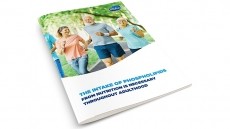Danone for iron: Firm to step up iron deficiency anaemia research in SEA and the case for supplementation

The company recently concluded a study in conjunction with researchers from Universiti Malaya Medical Centre, which found that one in three children aged six to 36 months in Malaysia was at risk of iron deficiency anaemia (IDA).
Known as the Iron Strong Study, the research was conducted as part of the firm’s plans in raising awareness of iron deficiency anaemia among young kids in South East Asia, Angie Low, ISEA Health Innovation, ISEA Health Innovation, Medical Affairs & Market Access Director, Danone told NutraIngredients-Asia.
Involving 1,201 children, the study found that those aged six to 12 months were at a higher risk of IDA as compared to those aged 12 to 36 months. The prevalence of IDA was 34.5 per cent in the former and 27.7 in the latter.
Underweight children were also more likely to be anaemic, according to the findings which is currently undergoing further analysis.
Iron deficiency anaemia occurs when there is not enough iron to support healthy red blood cells production and is one of the most common types of anaemia.
“This is the first and largest study that we have conducted on IDA in Malaysia so far.
“Anaemia is highly prevalent in South East Asia. If you look at Malaysia’s latest National Health and Morbidity Survey (NHMS) 2022, almost 50 per cent of the children under five years old are anaemia and this is the highest rate that we ever had in Malaysia,” said Low, adding that anaemia could affect brain and overall growth in children in the long run.
The study would also provide new insights on the nutrition status and ways to tackle IDA among young children.
The Iron Strong Study will also be conducted in Cambodia and potentially in Thailand as well – two of the countries where young children are facing high rates of anaemia alongside Malaysia and Indonesia, said Low.
“We are also looking at completing our study in Thailand and also starting one in Cambodia using a similar approach,” she said.
Product upgrades
Aside from research, the firm had also worked on improving dietary iron content in its nutritional products for young children.
For instance, milk formulas launched under the brand Dugro NextGen Nutri with Zat Besi Aktif (Active Iron Substance) have been upgraded to contain iron and vitamin C in the ratio of 1:3 – in line with the World Health Organisation (WHO) recommendation.
The upgraded formulas were launched in year 2021.
“This unique formula plays a crucial role in enhancing iron absorption in children by two times, besides providing other essential nutrients such as DHA, calcium, 21 vitamins and minerals to support children's optimal growth and development.
“It's important to consume iron together with vitamin C during the same mealtime as vitamin C helps in the absorption of iron,” Low explained.
She added that kids between one to three years old could meet 100 per cent of their recommended dietary allowance (RDA) for iron by taking three glasses of the formula per day.
Raising awareness
As part of its research on IDA, the firm will be advocating widespread screening of anaemia using a non-invasive device.
Anaemia is usually assessed by using a finger-prick device to measure the amount of total haemoglobin in the blood. Children below five years old are considered anaemic if the total haemoglobin is less than 11g/dL.
However, because finger-pricking is considered an invasive method that is shunned by both parents and young children, Danone is advocating the use of a non-invasive device in hopes of improving the rate of anaemia screening.
Total haemoglobin levels could be measured just by clipping the device on the finger. According to this method, a child is at risk of anaemia if the total haemoglobin level is less than 12g/dL.
“One of our strategies is to continue investing in R&D, in particular, leveraging on non-invasive screening tools to identify the risk of anaemia in children.
“Secondly, it's about working closely with healthcare professionals, and government stakeholders on how we could promote more proactive anaemia screening in early childhood, particularly in the health screening government clinics,” she said.
From August, Danone will also be running roadshows in 40 locations across Malaysia, including selected supermarket chains such as Aeon Big, Giant, Lotus, Mydin, where young children would be offered free anaemia screening.
“We want to raise the awareness of good nutrition and empowering parents with good nutrition knowledge, so that they are equipped with the right knowledge on how they could improve nutritional intake in their kids.”
















